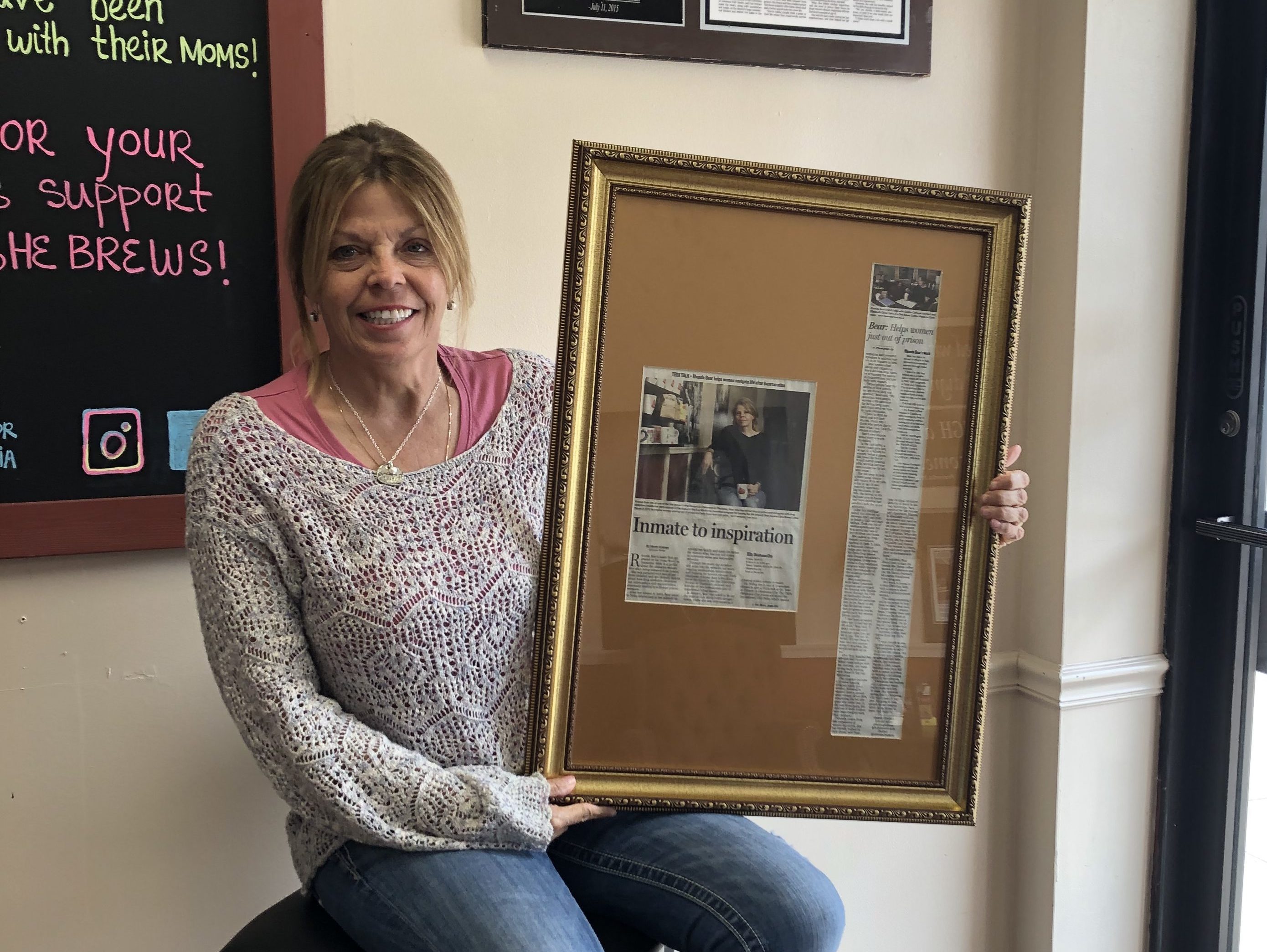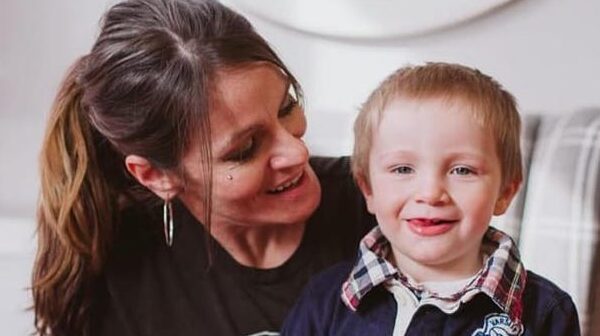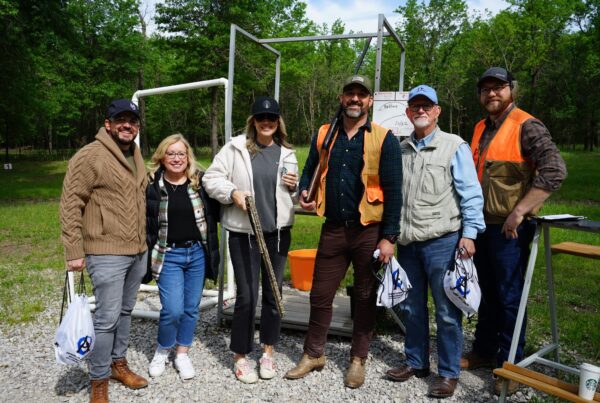One day last week,
One Day Last Week,
Shaunte Came Running
in from teaching the Women in Transition class at Eddie Warrior Correctional Center. "Rhonda, come quick," she said. Rhonda Bear, Women in Transition Program Director, says she "thought the women in the class had been disrespecting Shaunte" and that Shaunte needed her help.
So Rhonda rushed into the class. “What’s going on in here?” she asked.
That’s when every woman in the class stood up and started clapping.
A few weeks before, one of the ladies in class had seen this article in the Tulsa World. Proud of Rhonda, she’d worked with her classmates to have the article framed at the shop inside Eddie Warrior Correctional Center. That day, they presented the framed article to Rhonda.
Now the article is hanging at She Brews Coffee Shop with a note: “A gift from our friends at Eddie Warrior Correctional Center.”
Read the full article (appropriately titled, “Inmate to Inspiration”, below).

Inmate to Inspiration
By Ginnie Graham, Tulsa World
Rhonda Bear quietly builds momentum for criminal justice reform
After her marriage failed, she sobered up between 1993 and 1995 to finish a GED and start college. Then one hit of methamphetamine led to a spiral and loss of her children and home.



